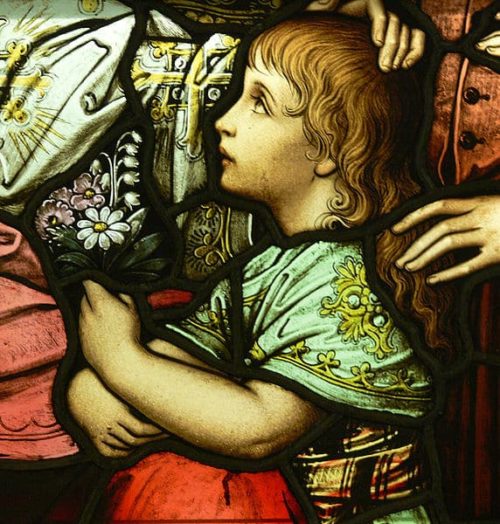 Many children are laughable in their deceptive abilities (or lack thereof). “No, I don’t know how the vase broke; I was, um, standing here on the other side of the room, and it fell.” Some of these deceptions might even be intentional, necessarily, but of the sort where the child should really know better: “I wasn’t pulling the dog’s tail; I was just holding it . . . it was the dog that was pulling!”
Many children are laughable in their deceptive abilities (or lack thereof). “No, I don’t know how the vase broke; I was, um, standing here on the other side of the room, and it fell.” Some of these deceptions might even be intentional, necessarily, but of the sort where the child should really know better: “I wasn’t pulling the dog’s tail; I was just holding it . . . it was the dog that was pulling!”
As parents and adults, we can generally see through these lies with startling ease. This often seems to befuddle the would-be liar, where their eyes betray their thoughts: “How did they know I ate those cookies? How could they have seen through my masterful deception?!” they ask themselves as crumbs continue to fall from their lips.
This metaphor came to mind as I reflected on today’s readings. The reading from Psalm 94 emphasizes the omniscient nature of God: “Shall he who shaped the ear not hear? or he who formed the eye not see?” Just as parents are much wiser than their young children can envision, so too is God infinitely more perceptive and knowledgable than we are. As futile as it is for a three-year-old to hide misdeeds from parents, it’s even less useful to hide our own shortcomings and sins from God.
So, my wife and I have a policy with our child that we’ve tried to stick with, that’s worked well for us. Namely, we’ve told him, “Don’t lie.” If our son comes to us with the truth, we will do our utmost to be calm and rational. There may well be some kind of punishment . . . but that punishment will be much worse if he tries to lie or conceal things from us – and we almost certainly will find out.
That’s how I view my own relationship with God. There’s no sense in not being honest with God, because He unerringly sees through our own dishonesty – sometimes even before we’re fully aware of the lies we tell ourselves. And he’s anxious for us to learn from our mistakes, recover, and become closer to Him. Indeed, that’s part of why the Sacrament of Reconciliation is so amazing; every priest I’ve ever been with has unerringly and without reservation given me the forgiveness of Christ, so I can go forward and strive to be a better person – which is similar to how I want my own child to address his mistakes and go forward.
In a similar way, today’s Gospel selection from Matthew also invokes a youthful outlook: “. . . although you have hidden these things from the wise and the learned you have revealed them to the childlike.” We can usually best experience new and amazing things by quieting that part of our minds that would seek to overanalyze the event – and the wonders of Jesus are as amazing as anything we can contemplate, while being simple enough that a child can understand them.
Time and again, Jesus emphasized the parent/child relationship as the perfect analogy for how we should view God’s relationship with us. We can look to that childlike outlook throughout our lives to bring our loving Father ever closer to our lives. By viewing our mistakes as opportunities to grow and do better, we can get nearer to Christ. By maintaining the childlike mind that is open to the possibilities and wonder of Christ’s message, the Spirit can more fully work through us to bring new insight and expressions for others to learn from.
Today’s readings: Is 10:5-7, 13B-16; Ps 94:5-6, 7-8, 9-10, 14-15; Mt 11:25-27
